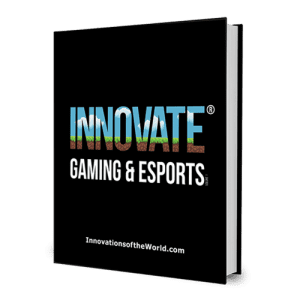By day, I build distributed systems as a backend engineer, but in my spare time, I learn and teach about game development using open-source technology. Generally speaking, open-source software is computer software released with a license that allows users to freely use, modify, and distribute it.
My career in software development was heavily inspired by video games. The more I played, the more curious I became about how games were made. I remember writing my first program. It was an impossible attempt by my brother and me to create a first-person Zelda clone on a TI-83+ graphing calculator. We had no clue what we were doing. However, when the simple text displayed as a title screen, and the basic, pixelated sword moved across the screen, I felt the magic of creativity.
10 years later, after gaining a little more programming experience, I attempted game development again as part of a college game development course. The course was designed around Microsoft’s XNA Game Studio. Microsoft provided a free version of its game development framework. However, XNA could not help us create our games’ visual assets. Many of us could not afford some of the proprietary tools like 3DS Max on a college student’s budget, so we sought out open-source tools like GIMP for sprite editing and Blender for creating 3D models. In addition to learning how to make a video game, I learned how expensive it can be to access the tools needed to make video games.
I didn’t pursue a career in game development, but I still dabble from time to time as a hobbyist game maker and game dev camp instructor. When I teach after-school and summer camps, I intentionally select open-source game development tools, so that students can freely access the technology if they want to continue their game development journey. With every new aspiring game maker, I hope to add a new voice to an increasingly diverse and innovative gaming industry.
It is no secret that diversity is a catalyst for innovation. In fact, some research suggests that diverse teams are nearly twice as likely to innovate than non-diverse teams: “Diversity yields superior outcomes over homogeneity because progress and innovation depend less on lone thinkers with high intelligence than on diverse groups working together and capitalizing on their individuality.” If diversity drives innovation,
then open-source software will be one of the main vehicles for the gaming industry.
Open-source technology contributes to gaming industry innovation in
many ways, including:
- Lowering upfront costs to game development, reducing barriers of entry for small teams and underrepresented groups
- Allowing anyone, regardless of their background, to contribute to public projects and gain valuable experience in the process
- Iterating software more quickly to develop features needed by the community, which increases the speed of innovation
Open-source tools are gaining traction towards becoming standards in the gaming industry. In the past 2 years, Godot, an open-source game development engine, has grown to be the 3rd most popular game engine for the Global Game Jam. Last year, it accounted for more Global Game Jam submissions than the combined submissions from the proprietary Construct and Gamemaker game development engines. This market growth is not limited to game jams and other game prototypes. Of all PC
games published to the Steam Store, open-source game engines represent 4 of the top 10 most popular engines.
As more STEM programs incorporate game development into their curriculums, they will naturally seek out the most affordable technologies that can run on the greatest variety of hardware. Free, and often lightweight, game development tools that can run in the browser or on budget-friendly computers will be the most practical choice. Over time, as these new creators enter the gaming industry, they will bring their open-source experience and diverse perspectives with them. Wherever open-source leads, innovation will soon follow.













